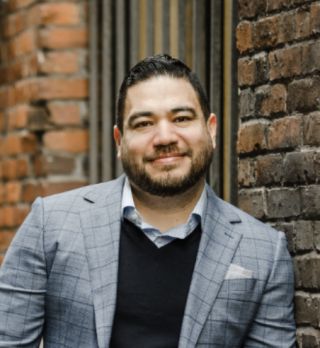Mental Health Stigma
"Mi Hijo Does Not Have Depression"
SNL invites conversations about mental health in the Latino community.
Updated November 28, 2023 Reviewed by Ray Parker
Key points
- Latinos are the largest racial-ethnic group in the U.S., at 19% of the population.
- Latinos are less likely to receive mental health care due to systemic factors.
- Erik Cardenas, cofounder of Zocalo Health, offering primary care "For Latinos, By Latinos,” discusses issues.
- Latinidad includes a great variety of countries, ethnicities, foods, and cultural backgrounds.
This is part 1 in a three-part series.
The "controlling mother," played by Pedro Pascal, takes us back to our childhood.
Latinos add so much color, flavor, and culture to our U.S. multicultural tapestry. We are the largest racial-ethnic group in the U.S., comprising 19.1 percent of the population. We are a diverse group of people with ties to more than 20 countries.
We identify as Mexicanos, Chicanas, Latinx, Newyoricans, Dominicanos, Colombianos, y mucho más. We love our food and music and thrive in the community. Our familia and comunidad are some of our greatest assets when it comes to taking care of our health.
Yet, as we navigate migration histories, colonization, and its impact on our wealth and health, we recognize we are not immune to systems of oppression showing up within ourselves, our homes, and our communities—these -isms include the bias against mental illnesses and mental health care.
Generally speaking, mental illnesses show up in our Latino community as much as they do in other U.S. populations, yet we are less likely to receive mental health treatment, less likely to use medications to treat our mental health needs, have less options when it comes to accessing mental health care (due to factors such as language barriers, cost of care, insurance status, etc) and rarely see ourselves represented in healthcare. All of these factors are compounded by the stigma against mental health care that is present across the U.S.
Yet, because there are so few Latine mental health clinicians who can open up these conversations with our familias, stigma certainly plays a role in our ability to seek mental health support. We all know that "You don't know what you don't know," so if no one in your family is openly discussing feelings, communication skills, and what therapy is about, then you likely grew up knowing nothing about these tools.
But don't worry, Bad Bunny, Pedro Pascal, and Marcello Hernandez have our back.
It is no surprise that the arts can invite meaningful conversations about mental health. I've written about how movies like Encanto or music can support our ability to discuss and learn about mental health. But can Bad Bunny invite us to reflect on how our family relationships impact our mental health?
Their recent appearance on Saturday Night Live (SNL) has many Latinos talking about it. This short sketch includes themes of parental protection versus controlling behavior, the relationship between physical violence and expression of love, racism and the harmful standards of beauty resulting in the objectification of women, and many more layers that intersect to impact our collective mental health.
To help me dissect some of these layers, I spoke to some Latino leaders working hard to improve the mental health of our comunidad. I'll share the perspective of a Latino, Mexican-American health tech founder, Erik Cardenas, who is building Zocalo Health to offer primary care "For Latinos, By Latinos."

I spoke with Cardenas, who is building a virtual primary care practice for Latinos by Latinos. Erik and cofounder Mariza Hardin are working hard to create a health practice that invites trust, connection, and prevention of chronic health conditions. This is important because Latinos tend to seek mental health care from primary care providers. Zocalo Health and I have been collaborating on creating spaces that promote mental health conversations in our familias y comunidades.
We hosted our first Cafecito, Cumbia, and Salud Mental in San Antonio, Texas, in October 2023. We are hosting three virtual cafecitos inspired by Bad Bunny's SNL sketch to help our community continue these important conversations. We hope you will join us.
Erik is passionate about improving the health of our Latino community, and he knows the importance of including mental health in that equation. Here is what he had to say about the SNL sketch and the importance of promoting mental health conversations in our Latino communities.
Barbara Robles-Ramamurthy: As a Latino/Mexican American man, what hit you hardest from the skit?
Erik Cardenas: The SNL skit poignantly highlighted a prevalent issue in our community: the reluctance to acknowledge mental health struggles, often masked by humor. What struck me most was the authenticity of the mother's denial about her son's depression, a scenario that's all too familiar in Latino families. This skit, while humorous, underscores a serious reality—the stigma surrounding mental health in our community. It reminds us that while laughter can be a coping mechanism, it's crucial to recognize and address mental health issues openly. Humor opens the door for dialogue, but it's our responsibility to continue these conversations, acknowledging that mental health is a genuine concern that deserves attention and care.
BRR: How have you experienced men's ability to speak about their mental health struggles, seek help from loved ones, and access health care?
EC: In my experience, many Latino men find it challenging to openly discuss their mental health struggles, largely due to cultural stigmas and expectations of masculinity. I've observed that men often feel pressured to appear strong and resilient, perceiving a discussion about mental health as a sign of weakness. This hesitation extends to seeking help from loved ones or accessing healthcare services. For instance, a close friend, despite battling severe anxiety, hesitated for years to seek help due to fear of judgment. It was only through consistent support and conversations that he gradually opened up and sought professional assistance. This personal observation underscores the need for creating safe, understanding environments where mental health can be discussed without stigma, especially in the Latino community.
BRR: How do these experiences impact your work as a health tech founder? Why does our Latino community need these spaces and conversations?
EC: These experiences have profoundly shaped my approach as a health tech founder. Recognizing the cultural barriers and stigma around mental health in the Latino community, I am driven to create solutions that are culturally sensitive and accessible. Our community needs these spaces and conversations because they provide a safe haven for individuals to express their struggles without fear of judgment. They also serve as a bridge, connecting people to the resources and support they need. As a founder, I focus on developing services and technology that facilitate these connections and conversations, ensuring that mental health care is not just a privilege but a right accessible to all, regardless of cultural background. In doing so, we not only address immediate needs but also work towards dismantling long-standing stigmas, paving the way for a healthier community.
Zocalo Health and I are committed to expanding the opportunities to destigmatize mental health conversations in our Latino community. Learn more about Zocalo Health, and we hope you will join us for a cafecito on Nov. 29, Dec. 6, and Dec. 13 to continue this conversation on mental health—all to the rhythm of Bad Bunny.




